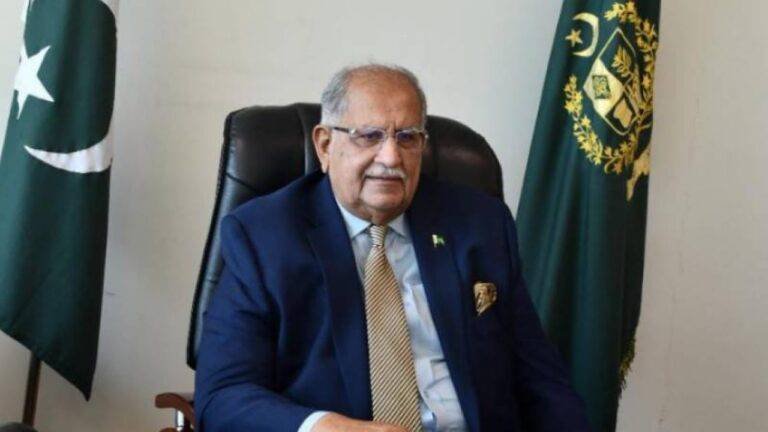Federal Minister for Housing and Works, Riaz Hussain Pirzada, on Tuesday, urged the leader of the opposition to exercise caution when making statements about Pakistan’s water crisis, emphasizing that such critical matters should be resolved through the Council of Common Interests (CCI) rather than public rhetoric.
Speaking during a session in the National Assembly, Pirzada pointed out that Bahawalpur’s water supply from the Sutlej River was cut off as a result of the Indus Waters Treaty, a longstanding agreement between Pakistan and India that governs the distribution of river waters. He highlighted that water scarcity is a serious national concern, requiring collaborative decision-making at the federal and provincial levels.
The minister also disclosed that Punjab’s share of water from the Diamer-Bhasha Dam has been proposed as a potential solution to address Bahawalpur’s water needs. He stressed that the issue should not be politicized and called for an informed, fact-based discussion rather than the spread of misleading narratives that could create unnecessary panic among the public.
Pirzada further noted that Bahawalpur has already suffered the loss of one of its rivers, making it essential to ensure equitable water distribution. He reiterated that sustainable water management should be a national priority and urged all stakeholders to work together to find practical, long-term solutions rather than engaging in divisive political statements.
Additionally, the minister highlighted the need for infrastructure development in water management, such as new reservoirs, improved irrigation systems, and efficient water conservation measures. He emphasized that resolving the water crisis requires a unified approach, with provincial governments, federal institutions, and relevant authorities working together to develop policy-driven strategies that ensure fair distribution across all regions.
Pirzada reaffirmed the government’s commitment to addressing water scarcity issues and called upon all political leaders to prioritize constructive dialogue over controversy, ensuring that the nation’s water resources are managed effectively for future generations.





